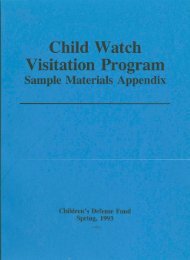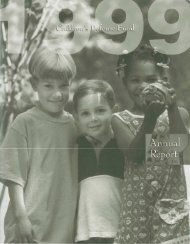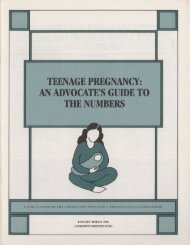PRE-TEACHING HUMANITIES OPTIONS: BACHELOR OF ARTS (5 ...
PRE-TEACHING HUMANITIES OPTIONS: BACHELOR OF ARTS (5 ...
PRE-TEACHING HUMANITIES OPTIONS: BACHELOR OF ARTS (5 ...
Create successful ePaper yourself
Turn your PDF publications into a flip-book with our unique Google optimized e-Paper software.
Reserve Officers Training<br />
DEPARTMENT <strong>OF</strong><br />
MILITARY SCIENCE AND<br />
TACTICS<br />
ARMY ROTC<br />
LTC David A . Jones, Professor of Military<br />
Science and Tactics ; M.E . North Georgia<br />
College<br />
The military program at The University of<br />
Tennessee predates that of any other state university<br />
in the country, having been introduced in<br />
1844 . In that year, Professor Albert Miller Lea,<br />
a West Point graduate, organized an infantry<br />
company . With the outbreak of the Mexican<br />
War, the entire company, as well as thousands<br />
of other Tennesseans, volunteered for service<br />
in the war . Thus, Tennessee became known as<br />
the "Volunteer State" .<br />
When The University of Tennessee reopened<br />
after the War Between the States, a system of<br />
military discipline was adapted . A Code of Military<br />
Regulations was drawn up and a copy was<br />
provided each student when he matriculated .<br />
The whole institution was put under regular<br />
West Point discipline . The student body was<br />
organized into a battalion of cadets, which consisted<br />
of four companies fully officered, armed<br />
and equipped under the command of the commandant<br />
and his staff of cadet officers . The<br />
University of Tennessee remained as a Military<br />
Garrison for a period of six years, until 1877 .<br />
Military Science continued to be taught, since<br />
the University of Tennessee was a Land Grant<br />
Institution and instruction in Military Science<br />
was required by the 1862 Act of Congress .<br />
The National Defense Act of 1916 changed<br />
the old military organization into a ROTC unit .<br />
For the first time, the Federal Government began<br />
to pay a part of the uniform cost for basic course<br />
students ; uniforms and other equipment were<br />
provided by the Government for Juniors and<br />
Seniors, and a monthly subsistence allowance<br />
was given to advanced course students .<br />
From 1928-1930, Major (later Brigadier General)<br />
Robert R . Neyland was the Professor of<br />
Military Science and football coach at The Uni-<br />
versity of Tennessee . Today, Neyland Stadium<br />
stands in tribute to his great accomplishments .<br />
The purpose of Army ROTC is to provide<br />
professional education which will prepare<br />
students for appointment as commissioned<br />
officers in the Regular Army or the United<br />
States Army Reserve components .<br />
Objectives of the program are to provide<br />
students with an understanding of the fundamental<br />
concepts and principles of military art<br />
and science ; to develop a basic understanding<br />
of associated professional knowledge, a strong<br />
sense of personal integrity, honor, and individual<br />
responsibility, and an appreciation of the<br />
requirements for national security; and to<br />
establish a sound basis for the students' future<br />
professional development.<br />
ROTC draws young men and women for<br />
training from all geographical, economic, and<br />
social strata of our society as well as from the<br />
many educational disciplines required for the<br />
modern Army . The program ensures that men<br />
and women educated in a liberal and broad<br />
spectrum of American institutions of higher<br />
learning are commissioned annually into the<br />
officer corps .<br />
SATISFACTORY/NO CREDIT<br />
COURSES<br />
Since Military Science is not a major course<br />
of study that leads to a degree in a specific<br />
academic discipline, the number of satisfactory/<br />
no credit courses is decided by the college of<br />
the student's academic major . All ROTC courses<br />
are offered on a letter grade basis only .<br />
COURSE LOAD<br />
No more than one Military Science course<br />
may be taken during any given semester,<br />
unless an exception to policy is approved by<br />
the Professor of Military Science and Tactics<br />
on a case-by-case basis . Students enrolled in<br />
the advanced program (upper division Military<br />
Science 300 and 400 level courses) and<br />
ROTC scholarship cadets are required to be<br />
full-time students, taking at least 12 hours each<br />
semester .<br />
133<br />
COURSE SUBSTITUTION<br />
On the basis of previous honorable active<br />
military service in any branch of the Armed<br />
Services, or participation in a Junior ROTC<br />
Program at a Secondary School, a student<br />
may request exemption from portions of the<br />
Basic Course (Military Science 100 and 200<br />
level courses) . Placement credit may also be<br />
authorized for completion of basic training and<br />
advanced individual training . Exemption allowed<br />
will be determined by the Professor of Military<br />
Science and Tactics . Military Science courses<br />
taken at other colleges or universities are<br />
transferable as approved by the Professor of<br />
Military Science and Tactics .<br />
REQUIREMENTS FOR<br />
ENROLLMENT AND<br />
CONTINUANCE<br />
The general requirements for enrollment<br />
and continuance in the Army ROTC program<br />
are : 1 . Basic Military Studies<br />
a . Be a citizen of the United States .<br />
b . Be physically qualified .<br />
c . Freshman and Sophomore standing .<br />
Student with higher standing requires<br />
consent of instructor .<br />
2 . Advanced Military Studies Cadets applying<br />
for enrollment in the Advanced ROTC<br />
program who seek a Commission must :<br />
a . Have successfully completed Military<br />
Science 110, 120, 210, 220 or have<br />
accomplished one of the following : Prior<br />
Military Service, ROTC Basic Military<br />
Studies - Practicum (MS 200), 3-Year High<br />
School ROTC Basic Course .<br />
b . Have two years remaining at the<br />
University (either undergraduate, graduate<br />
or in pursuit of additional course work) .<br />
c . Have completed a minimum of 55<br />
semester hours .<br />
d . Be under 30 years old at time of<br />
commissioning (waiverable) .<br />
e . Be enrolled as a full-time student, either<br />
at The University of Tennessee or at a<br />
nearby institution in a cooperative program .<br />
f . Meet military screening and physical<br />
requirements .














